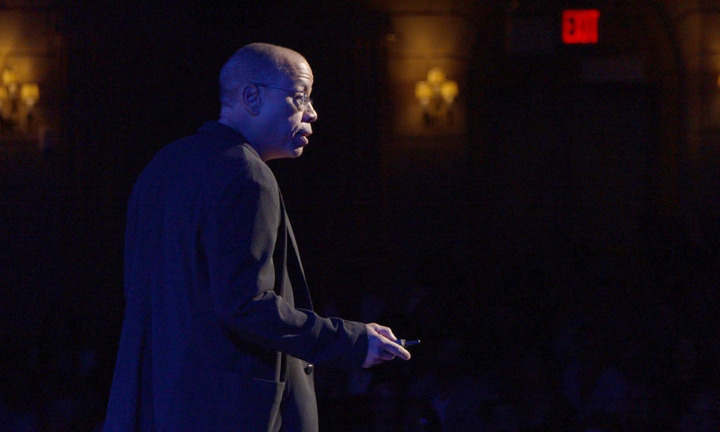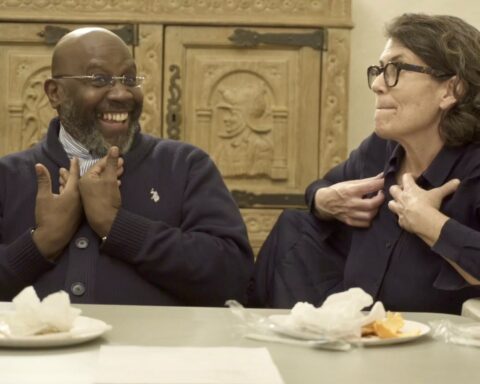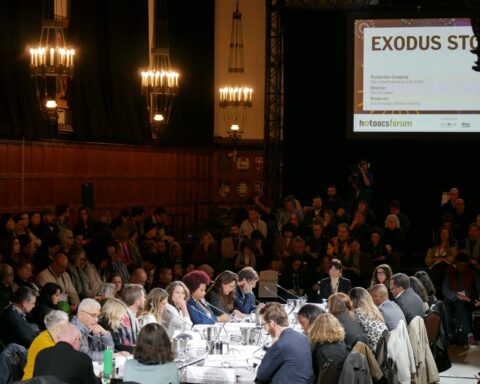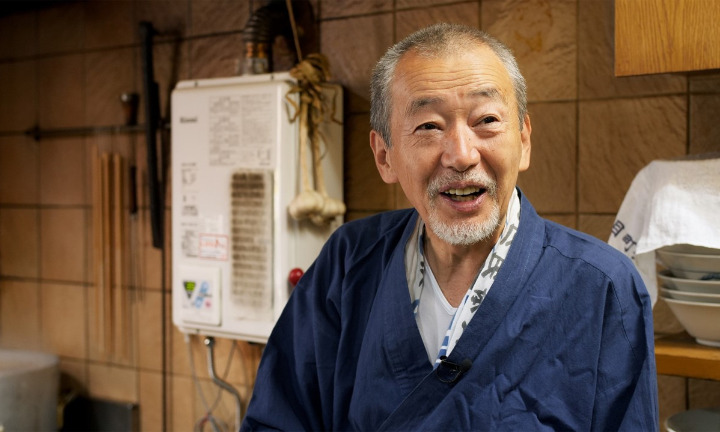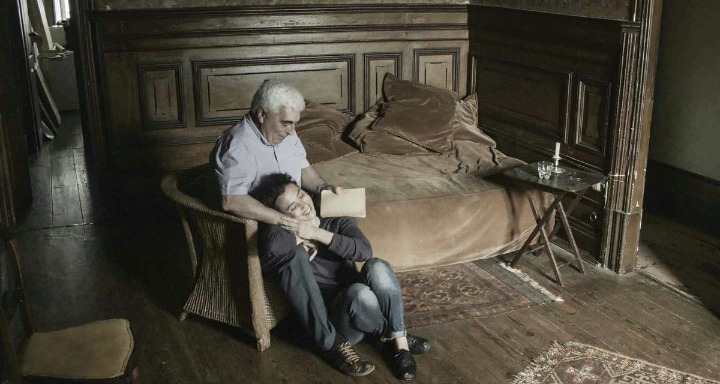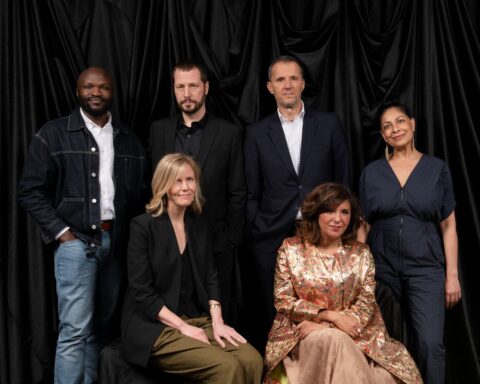Jeffery Robinson has argued many cases on the road to becoming deputy legal director of the American Civil Liberties Union. He presents arguably his most significant case in the excellent Who We Are: A Chronicle of Racism in America. The challenge is a tough one: to convince Americans that the USA is a nation founded on white supremacy and that it’s time to leave the past behind. This means confronting painful truths. Like any good advocate, however, Robinson anticipates counter-arguments before they arrive and comes prepared with evidence to support his claims. The result is a thoroughly compelling documentary that makes arguments both intellectual and emotional. It urges audiences to grasp the desire for change in the air. Who We Are is a significant work, both for its confrontation of a nation’s troubled past and for its hopeful look to the future.
Much of Who We Are features footage from a lecture that Robinson gave in New York on June 19, 2018. Delivering such a speech on Juneteenth, the day celebrating the emancipation of enslaved persons in the USA, surely gives his delivery the spark that makes it such an absorbing watch. Robinson is an excellent speaker and directors Emily Kunstler and Sarah Kunstler (sisters) know the asset in their arsenal. Robinson fearlessly unpacks America’s history with racism and white supremacy, guiding audiences from the days of slavery through the assassination of Dr. Martin Luther King, Jr. to the response to the Black Lives Matter movement.
Nothing is off limits. Robinson excavates and confronts sore chapters of history and deconstructs the images of American heroes. This film is not afraid to say that America’s founding fathers were racists and Robinson has the receipts to prove it. President Andrew Jackson, for example, seems unworthy of the twenty-dollar bill that bears his image after Robinson pulls up an old newspaper ad in which Jackson offered a reward for a missing slave—including a bonus for every 100 lashes given to said slave before delivery.
The film interweaves the 2018 speech with new footage in which Robinson collects further evidence in the streets of America. He visits a museum in New Orleans that preserves the history of slavery with both horrific and hopeful artefacts. Shackles fit for a child adorn the wall—deeply troubling evidence that the slave trade had no bottom to its barbarism—but so too do imperceptible indentations. Robinson asks the guide to describe the pockmarks in the brick. The host explains that New Orleans bears witness to the contributions of slaves through the marks they left with their hands in the bricks they laid and the clay they formed. Each mark is a small gesture of existence in a land in which not all men are free.
Some episodes jarringly speak to the present. For example, Robinson encounters a trio of protesters defending the Confederate flag in Charleston, South Carolina. Robinson asks one grizzly-bearded boy about the flag of which he is so proud. He asks him about the fairness of slavery and the dehumanizing ideology that the flag represents. As the man babbles around Robinson, even asserting he probably would have been comfortable being a slave as a means to a living, Who We Are demonstrates the deeply entrenched worldview that Americans need to challenge. The age of Trump exemplifies that the USA is a country where rational thought is in limited supply. Robinson becomes visibly disturbed and politely thanks the men for their time. The film asks how America will ever change its ways when so many people can’t be bothered to listen and have a stake in ignorantly perpetuating the status quo.
Robinson also emphasizes the lives lost amid white supremacy’s last stand. The troubling video footage, circulated so widely it has become its own genre of trauma porn, offers evidence that some police officers are just contemporary versions of slave owners. While the videos remain shocking no matter how often one sees them, the film looks further into the lives of Black men who died by police violence. Interviews with people like Gwen Carr, mother of Eric Garner, put a face to the pain caused by white supremacy’s reach. Robinson visits the sites of lynchings and murders, illustrating that one can hardly walk a block in America without stepping foot atop its racist past. He speaks with activists at the sites of former monuments and the film elucidates why America must remove these traumatizing signifiers. Most compellingly, Robinson revisits his past and learns about the challenges his parents and teachers faced while raising him in a troubled land.
Who We Are speaks to an audience reared on TED Talks as Robinson compelling captivates the crowd. This mode of delivery is effective—that’s why the Talks hook so many viewers—and it’s the right one to use as the lecture becomes like a direct address to each viewer. The film is less an extended TED Talk and more a contemporary of Davis Guggenheim’s An Inconvenient Truth. Robinson brings out the PowerPoint—quite effectively, too, as he demonstrates inherent bias that’s extremely difficult to unlearn and presents images that make viewers look the cost of racism in the face. One could call Who We Are the Inconvenient Truth of American racism, but it’s so much more. If An Inconvenient Truth was an awareness campaign, then Who We Are is a rallying cry. The film underscores the need for change when it notes the date of the lecture: June 19, 2018—two years before the tumultuous summer of 2020, and yet so potent it could have been delivered yesterday.
Who We Are: A Chronicle of Racism in America streams at Hot Docs 2021.




